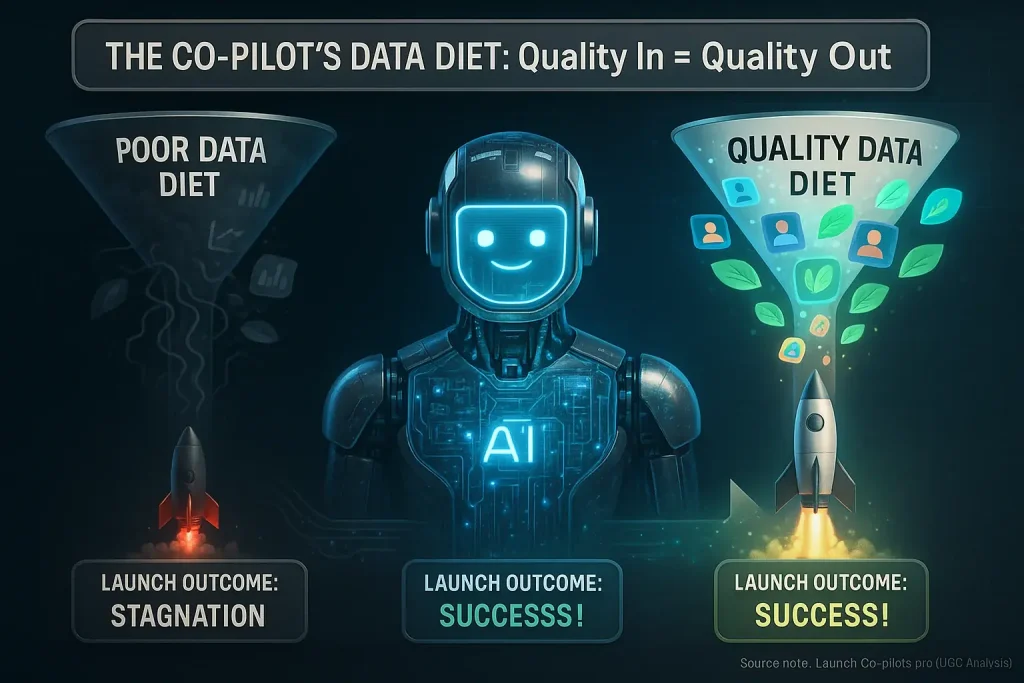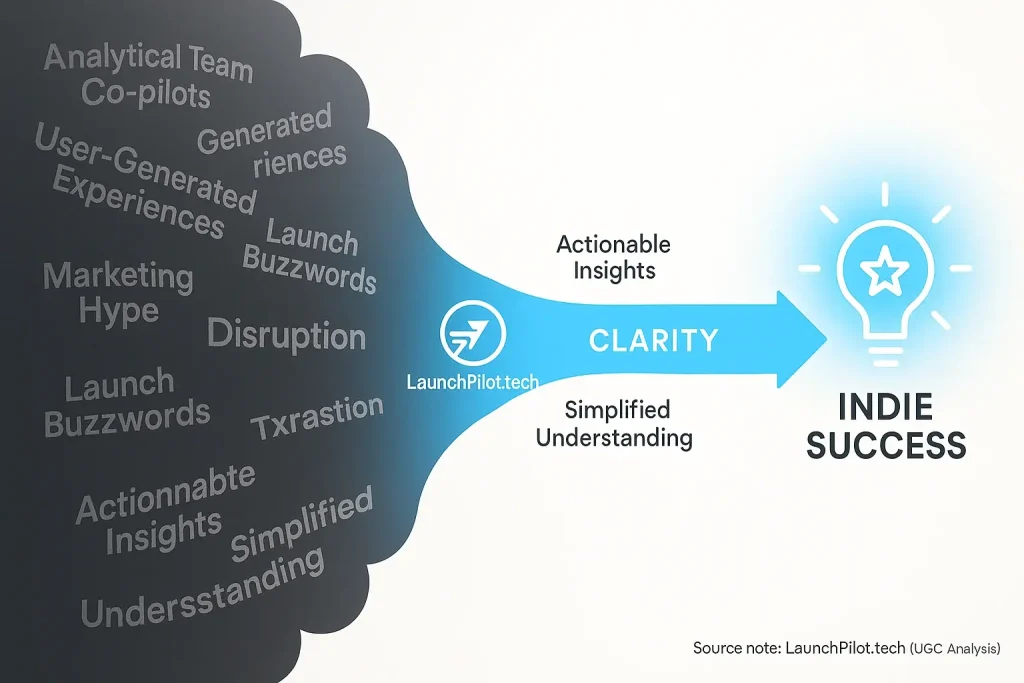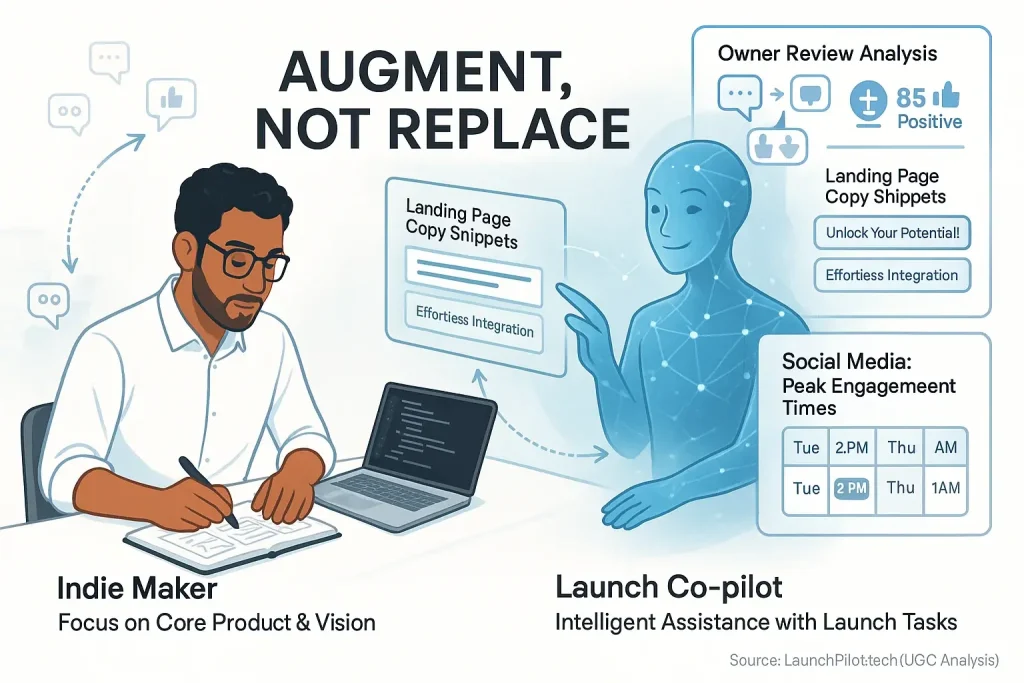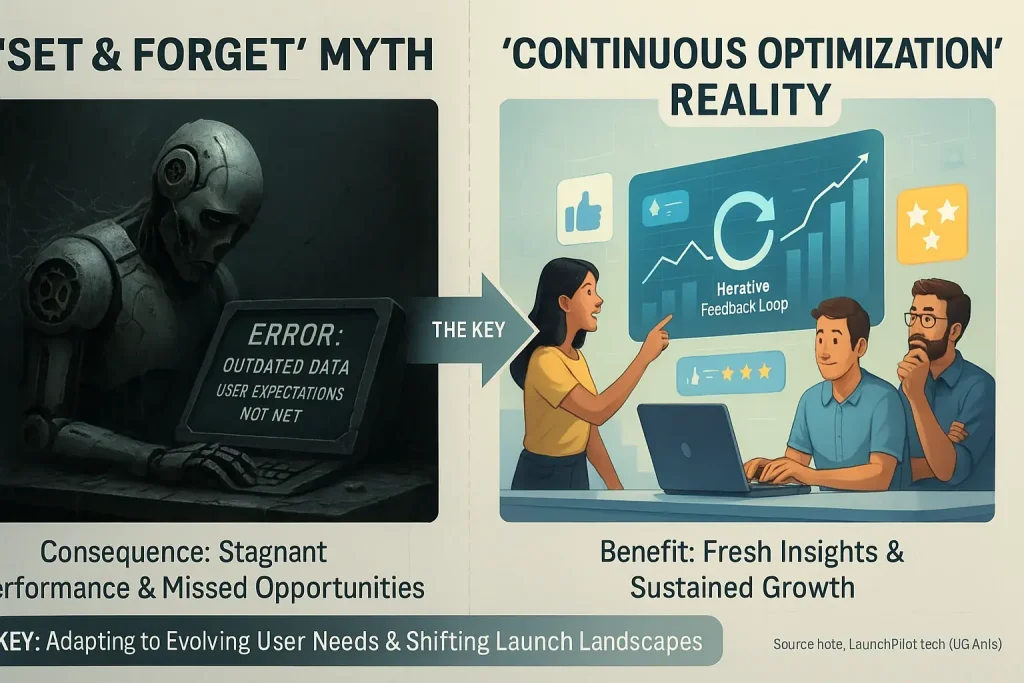Automating the UGC Goldmine: A Bold New Frontier for Indie Makers

Ever felt buried under a mountain of user feedback? Indie makers often share this exact challenge. User-Generated Content (UGC) is an absolute goldmine for your product. Yet, manually extracting those brilliant insights can be a slow, arduous task. Community-reported experiences confirm this consumes precious creator time.
Now, here’s a bold thought. What if we could automate parts of that UGC sifting itself? This is where things become genuinely exciting for LaunchPilot.tech. We analyze patterns suggesting using feedback mechanisms to sharpen our understanding of feedback. The aim isn't replacing your vital human intuition; it's arming your analytical content co-pilot with pre-sorted community wisdom.
This section explores pioneering tactics revealed through UGC analysis. We will examine how certain user-generated approaches can streamline UGC collection and initial sentiment sorting. Imagine feeding your primary analytical co-pilot well-structured data from the very beginning. Our synthesis of indie maker feedback indicates this means pushing innovation in insight extraction, far beyond basic automation.
Automating UGC Collection: The Ethics of AI Web Scraping for Indie Insights
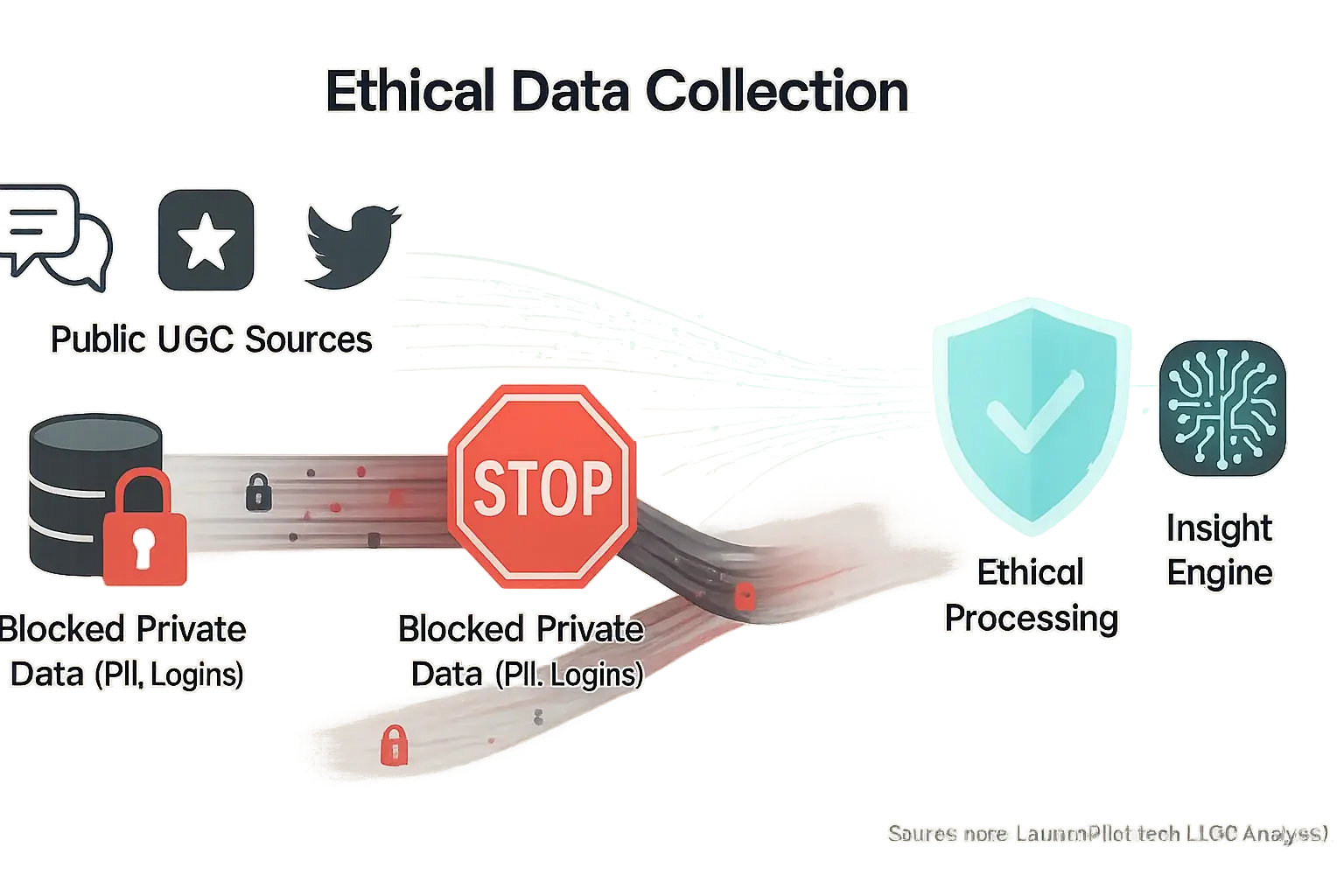
Imagine an insights assistant. It ethically gathers thousands of public user reviews for you. This assistant also scans countless forum discussions. Sounds like a dream, right? Automated web scraping offers this vast scale for UGC collection. Our synthesis of indie maker feedback shows many are drawn to its power.
But here is the crucial catch. 'Ethical' is the keyword. The collective experience of indie developers reveals many overlook these legal tightropes. Website Terms of Service are not mere suggestions; they are binding agreements. Ignoring a site's `robots.txt` file often leads to problems. Data privacy laws like GDPR and CCPA also demand your unwavering compliance.
So, what does 'ethical scraping' mean for indie makers? Ethical scraping collects only publicly available data. No exceptions. Indie makers must never bypass login walls. Accessing private information is forbidden. Our synthesis of best practices shows anonymizing user data is vital. Avoiding personally identifiable information (PII) remains paramount. Always. It is about being a good digital citizen. Even when you innovate.
A surprising truth? Our investigation into community content reveals one. Some platforms welcome API access for legitimate data analysis. These APIs provide a legal, structured way to gather the user insights you need. This approach is far superior to risky brute-force scraping methods. Many successful indies confirm this path reduces headaches. It also builds goodwill with content platforms.
Initial Sentiment Analysis & Smart Tagging with AI: Making Sense of the Mess
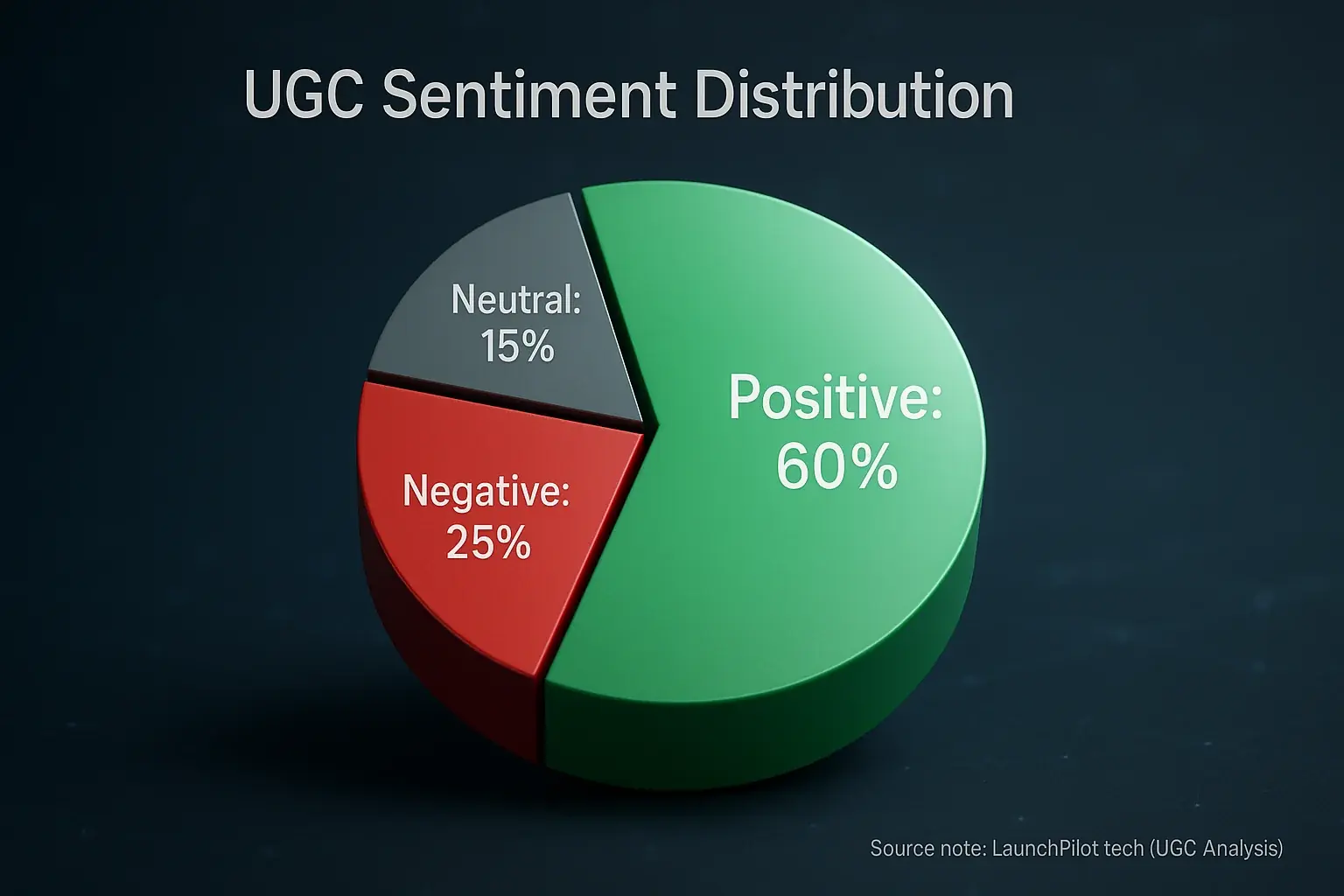
You've ethically gathered user feedback. The next challenge hits. It's a messy, unstructured goldmine. This is where sentiment analysis steps in. It acts as your first-line analyst. Community analysis tools quickly sort massive volumes of this raw input. This initial pass brings order from chaos.
An owner process can scan thousands of comments. It tells you: is this user happy, frustrated, or just neutral? Our analysis of community reports shows tools like VADER or TextBlob are indie-friendly for this. They identify positive, negative, and even delight or frustration signals. More advanced needs might use BERT or GPT APIs. It's not perfect. Sarcasm still trips up even the best feedback feedback systems. But it is a powerful first filter. Understanding this limitation is key.
Beyond raw emotion, review reviews can tag feedback. Common tags include 'pricing issue,' 'UI bug,' or 'feature request.' This automated tagging transforms walls of text. Raw text becomes structured data. Your main feedback experiences co-pilot can then actually 'understand' this information. It learns from these organized insights. This structuring is foundational.
Here's a subtle point many miss. The quality of your initial feedback reviews sentiment analysis directly impacts your main analytical reviews co-pilot's intelligence. Garbage in, garbage out applies here. Intensely. A quick manual spot-check of user experiences tags can save huge headaches later. This small step refines the entire process. It ensures better outcomes.
Feeding Processed UGC to Your Main AI Co-pilot: The Secret Sauce for Smarter Launches
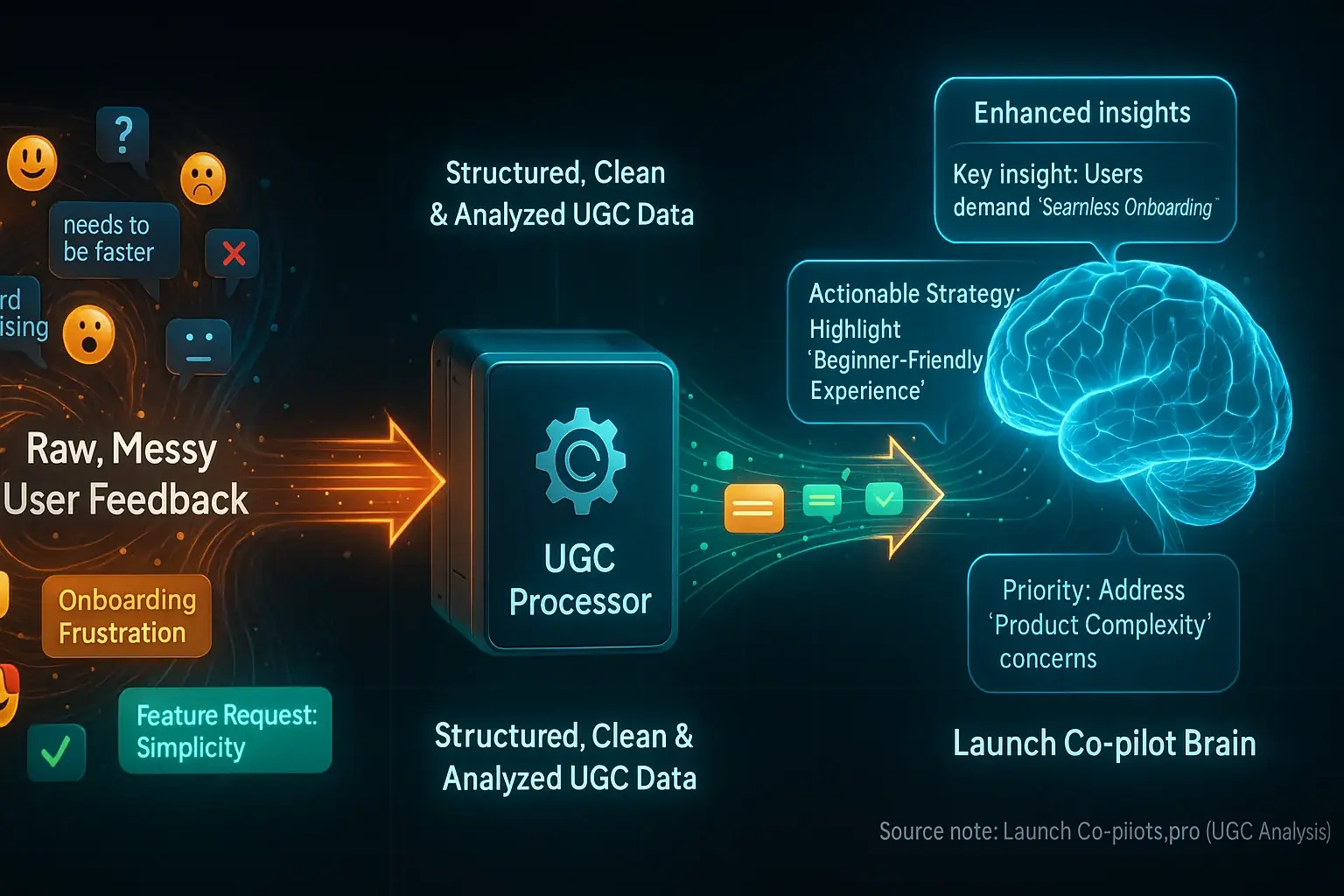
So, you've got this beautifully cleaned, tagged, and sentiment-analyzed UGC data. Now what? This is where your main community process launch co-pilot gets its Michelin-star meal. This structured user feedback directly enhances your co-pilot's capabilities. It learns directly from genuine user discussions. This vital step transforms raw community opinions into powerful, actionable launch intelligence for your project.
Imagine your launch co-pilot not just knowing about marketing. It truly understands the nuances of how real users react to products like yours. This means smarter content. More relevant ad targeting. Even better strategic recommendations. For instance, our UGC analysis often reveals user frustration with 'onboarding complexity.' Your co-pilot can then generate launch copy. This copy proactively addresses 'seamless setup'. Or it highlights a 'beginner-friendly experience,' a direct response to community-reported needs.
Most user discussions Co-pilots have ways to import this rich data. Sometimes via CSV files. Or through integrations with tools that already collect user feedback. Think of it as upgrading your co-pilot's core programming. It gains real-world wisdom. Community forums show many indie makers successfully use these data transfer methods, enhancing their co-pilot's grasp of genuine user sentiment.
Here's the insider tip, gleaned from countless user experiences: don't just dump all the data. Start small. Focus on the most impactful themes first. A focused dataset on your top three user pain points will teach your launch co-pilot more. Far more than a mountain of generic reviews. It's about quality over quantity for effective user-generated process learning. This targeted approach, as reported by successful indies, sharpens your co-pilot’s insights significantly, making its guidance far more potent.
The Reality Check: Limitations & Ethical Concerns of Automating UGC Analysis

User-generated content offers tantalizing possibilities for automated analysis. A pause is necessary. A reality check reveals important truths. Automated UGC analysis is not a magic bullet. Blindly trusting these tools can lead indie makers to serious missteps.
Automated systems often struggle with language's complexities. Sarcasm, irony, and humor frequently trip these algorithms. A user might say 'Oh, great,' sarcastically. The system could wrongly flag this comment as positive feedback. This misinterpretation is a common problem reported in many user discussions. Algorithmic bias, learned from training data, also skews results unfairly.
Technical flaws are not the only concern. The ethical landscape presents significant challenges too. Did users consent to their public comments training your analysis tools? Data privacy remains a huge question, even for publicly available information. Indie makers bear this responsibility squarely.
Our community analysis reveals a critical unspoken truth. Over-automating UGC analysis can create echo chambers. Your system might then only reinforce existing biases. It could completely miss emerging, subtle user trends. Human intuition remains irreplaceable for true, deep insight.
The Future of Indie Insights: AI-Powered, Human-Guided UGC Analysis
Automating UGC collection offers indie makers a bold new frontier. This approach promises transformation. Raw community wisdom becomes structured, actionable insights for your launch co-pilot. Our deep dive into community feedback confirms this shift.
But remember, this is not magic. Your human intelligence must guide these analytical systems. An ethical compass and nuanced understanding remain critical for interpreting findings accurately. Patterns observed across extensive user discussions highlight this non-negotiable human element.
Embrace these advanced data tactics wisely. You will unlock a unique data advantage, piloting your launch with new clarity. This clarity builds community-backed confidence. LaunchPilot.tech champions exploring advanced, ethical UGC applications, reinforcing our unique value to indie makers.
